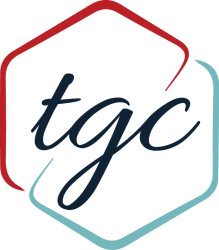By: Lexi Lynn
With employers receiving dozens of applications, the smallest grammatical error can mean the difference between getting an interview or getting the rejection letter.
Quantify your achievements
Keywords such as initiated, increased, and coordinated are all great descriptive words to highlight achievements rather than focusing on responsibilities. Instead of using your bullet points to list your job duties, use the space to show the employer how you contributed and what you accomplished. Be sure to include any instance in which you helped reduce costs or boosted revenue as a result of your work. A helpful way to do this is to insert specific numbers to show for example how many people you managed, or perhaps the percentage of increased social media followers you helped earn. Including any metrics, rankings or ratings putting you in a positive light is a big way to catch your employer’s interest. Check out this article How to Quantify Your Resume Bullets, by The Muse, highlighting more tips on this subject.
Proofread
Although this goes without saying, the importance of proofreading your resume is so critical it deserves to be mentioned. With employers receiving dozens of applications, the smallest grammatical error can mean the difference between getting an interview or getting the rejection letter. Some ways to avoid this are reading it out loud. This tried-and-true method of reading it out loud line by line, word by word can help you catch any mistakes you might not have seen by just skimming for errors. Also, having someone else proofread it provides a second set of eyes to see anything that you may have missed. Another helpful tip to avoid any errors is just by simply printing it out. We often read things differently in print than on screen, and this extra step can help you avoid making the mistakes that could potentially cost you a job.
School projects count
Creating a resume when you have no prior work experience can be a daunting task. It’s important to remember that class projects provide valuable experiences and can be used to show the skills you have learned. Don’t count class projects out when you are listing experience. Employers are looking to see what abilities you can bring to their company, and you may already have these skills you learn from the work that you’ve done in school. For example, describing your achievements from a specific class, student organization, campus internship, or volunteer experience is a great way to show off your experience to the employer. You can add to this by adding the course name, the title of the project, and then putting bullet points listing accomplishments and major details. Check out this guide by LiveCareer on How to Turn Classroom Experience Into Work Experience In a Resume.
Things to Leave Out
While you may think adding the contact details of your references is a good idea, it is now a common practice to leave those out. Employers will ask you for references if they need, and you don’t want to waste any precious space on your resume filling it with this miscellaneous or unnecessary content. Your personal information is another thing that you want to leave off your resume. Including your address on your resume is not needed, because recruiters are not going to mail you anything. Keep your resume professional, and only give out your number, email, and any additional accounts you think the employer should see, such as a LinkedIn page. For more tips, check out this video: 5 Resume Mistakes You Need to Avoid





